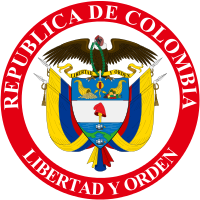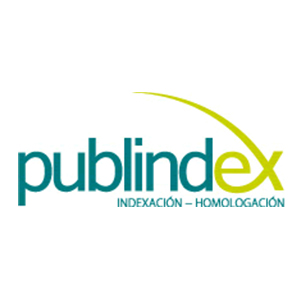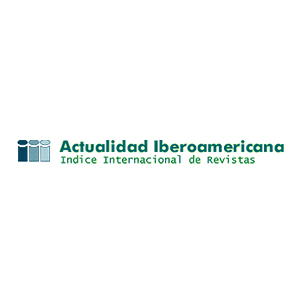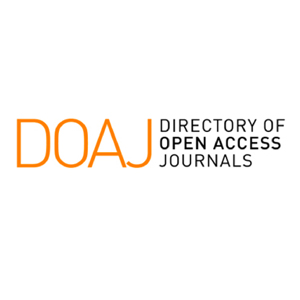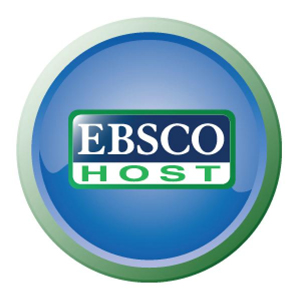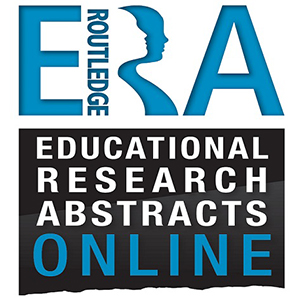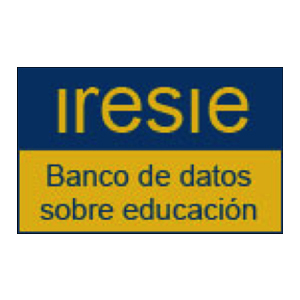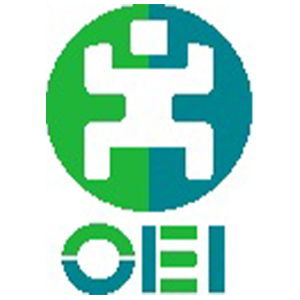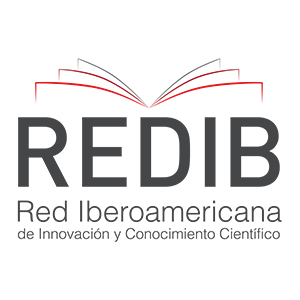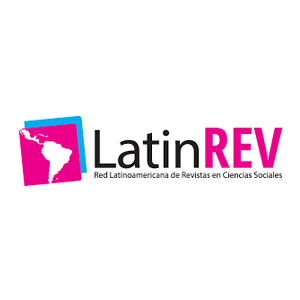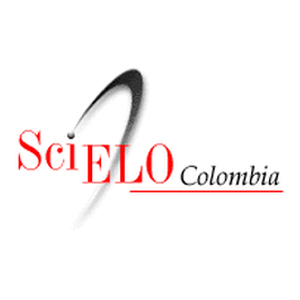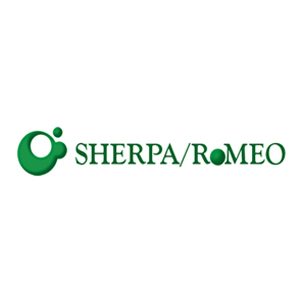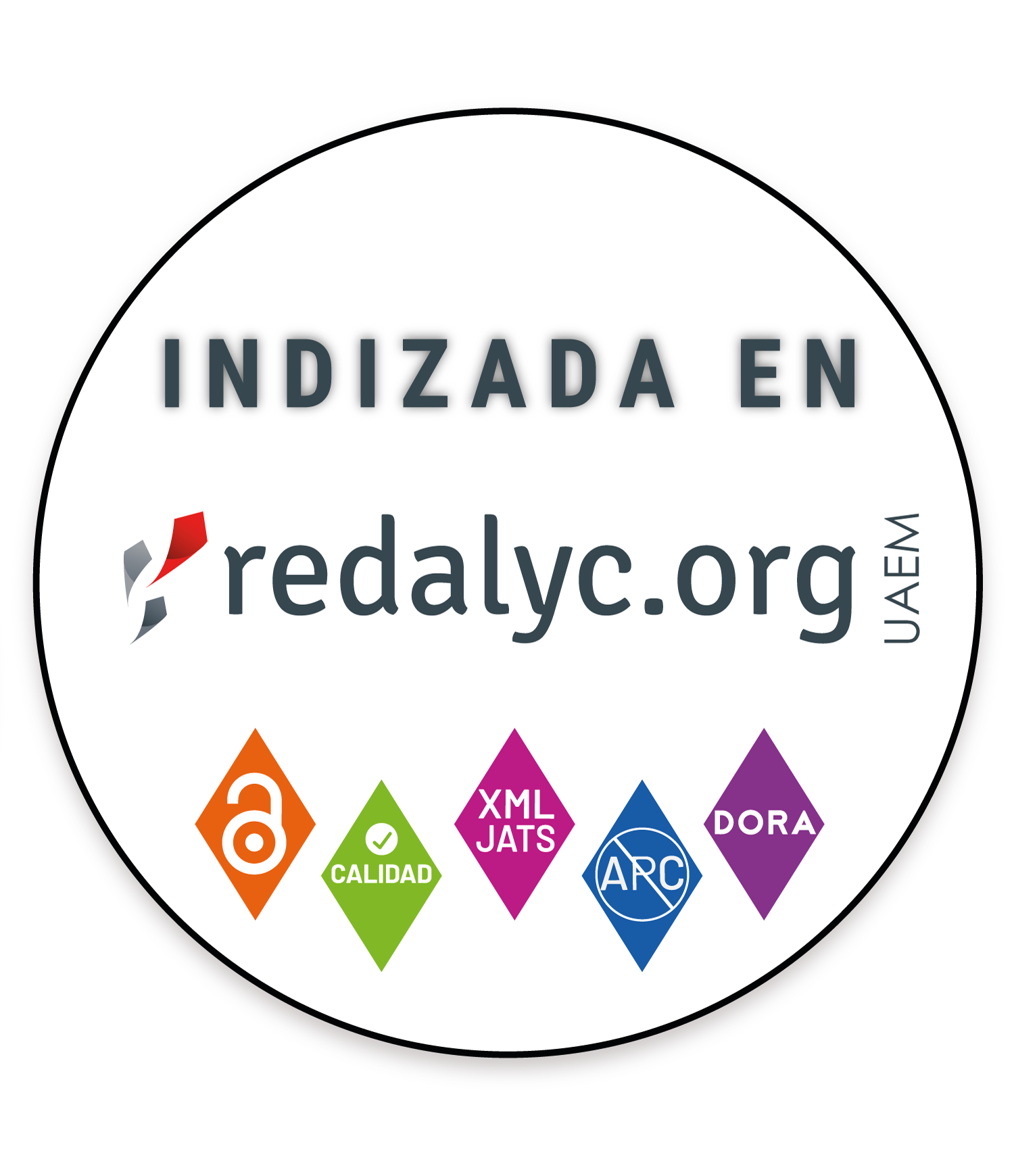Elementos de la práctica reflexiva en la formación y desarrollo profesional de los docentes
Elements of Reflective Practice in Teacher Training and Teacher Professional Development
Elementos da prática reflexiva na formação e desenvolvimento profissional de professores
La práctica reflexiva es considerada como un elemento que fundamenta el diseño y la implementación de los diferentes cursos de aprender a enseñar una disciplina, los cuales configuran de forma coherente los programas de educación del profesor. Este artículo de reflexión intenta documentar los principales elementos que estructuran la reflexividad como una herramienta sociocognitiva, cuya apropiación progresiva tensiona y ayuda a desarrollar el sistema de conocimiento, creencias y valores sobre la enseñanza-aprendizaje de una disciplina, aspectos con los que llegan los profesores a los programas de formación y desarrollo profesional. En estos se considera la educación como una disciplina práctica que les permite a los docentes enfrentarse a problemas inciertos y complejos durante la planeación y enseñanza, para los cuales no existe una solución prediseñada. La construcción de esta se encuentra mediada por el proceso deliberado de la reflexión para, en y sobre la acción. Estas especies de reflexividad pueden comenzar a ser apropiadas por el profesor a lo largo de un continuo que inicia con la reflexión técnica, pasa por la práctica y finaliza con la crítica, con el fin de identificar y desarrollar las bases del conocimiento para la enseñanza de una disciplina en el marco de asuntos educativos, éticos y sociales.
formación docente, práctica de la enseñanza, educación (es)
prática reflexiva, formação de professores e desenvolvimento profissional, níveis de reflexividade, educação (pt)
Bassot, B. (2015). The reflective practice guide: An interdisciplinary approach to critical reflection. Routledge. DOI: https://doi.org/10.4324/9781315768298
Bawaneh, A. K., Moumene, A. B. H. y Aldalalah, O. (2020). Gauging the level of reflective teaching practices among science teachers. International Journal of Instruction, 13(1), 695-712. https://doi.org/10.1080/14703297.2013.778067 DOI: https://doi.org/10.29333/iji.2020.13145a
Bean, T. W. y Stevens, L. P. (2002). Scaffolding reflection for preservice and inservice teachers. Reflective Practice, 3(2), 205-218. https://doi.org/10.1080/14623940220142343 DOI: https://doi.org/10.1080/14623940220142343
Bradley, J. (2015). Designing schools for meaningful professional learning: A guidebook for educators. Corwin Press. DOI: https://doi.org/10.4135/9781483339269
Burton, J., Quirke, P., Reichmann, C. y Peyton, J. K. (Eds.). (2009). Reflective writing: A way to lifelong teacher learning. tesl-ej Publications.
Candela, B. F. y Viafara, R. (2014). Articulando la CoRe y los PaP-eR al programa educativo por orientación reflexiva: una propuesta de formación para el profesorado de química. Tecné, Episteme y Didaxis: ted, (35), 89-111. https://doi.org/10.17227/01213814.35ted89.111 DOI: https://doi.org/10.17227/01213814.35ted89.111
Candela, B. F. (2018). Desarrollo del conocimiento tecnológico y pedagógico del contenido de la química, de profesores en formación a través de la reflexión de los PaP-eRs y videos. Góndola, Enseñanza y Aprendizaje de las Ciencias, 13(1), 101-119. https://doi.org/10.17227/01213814.35ted89.111 DOI: https://doi.org/10.14483/23464712.12177
Carrington, S. y Selva, G. (2010). Critical social theory and transformative learning: Evidence in pre-service teachers’ service-learning reflection logs. Higher Education Research & Development, 29(1), 45-57. https://doi.org/10.1080/07294360903421384 DOI: https://doi.org/10.1080/07294360903421384
Carroll, C. y O’Loughlin, D. (2014). Peer observation of teaching: Enhancing academic engagement for new participants. Innovations in Education and Teaching International, 51(4), 446-456. https://doi.org/10.1080/14703297.2013.778067 DOI: https://doi.org/10.1080/14703297.2013.778067
Cochran-Smith, M. y Lytle, S. L. (2009). Inquiry as stance: Practitioner research for the next generation. Teachers College Press.
Collin, S. y Karsenti, T. (2011). The collective dimension of reflective practice: The how and why. Reflective Practice, 12(4), 569-581. https://doi.org/10.1080/14623943.2011.590346 DOI: https://doi.org/10.1080/14623943.2011.590346
Cuesta, J., Azcárate, P. y Cardeñoso, J. M. (2016). The role of reflection and collaboration in the evolution of a group of novice secondary education science teachers. Australian Journal of Teacher Education (Online), 41(5), 136-152. http://dx.doi.org/10.14221/ajte.2016v41n5.9 DOI: https://doi.org/10.14221/ajte.2016v41n5.9
Cserpes, T. (2015). Measuring identity change: Analysing fragments from the diary of Sandor Karolyi with social-network analysis. En I. J. Lazaroms y E. R. Gioielli (Eds.), The politics of contested narratives: Biographical approaches to modern European history (pp. 77–96). Routledge.
Danielson, C. (2012). Observing classroom practice. Educational Leadership, 70(3), 32-37.
Danielson, L. (2008). Making reflective practice more concrete through reflective decision making. The Educational Forum 72(2) 129-137. https://doi.org/10.1080/00131720701805009 DOI: https://doi.org/10.1080/00131720701805009
Darling-Hammond, L. (2008). Teacher learning that supports student learning. Teaching for Intelligence, 2, 91-100.
Davis, E. A. (2006). Characterizing productive reflection among preservice elementary teachers: Seeing what matters. Teaching and Teacher Education, 22(3), 281-301. https://doi.org/10.1016/j.tate.2005.11.005 DOI: https://doi.org/10.1016/j.tate.2005.11.005
Dervent, F. (2015). The effect of reflective thinking on the teaching practices of preservice physical education teachers. Issues in Educational Research, 25(3), 260-275.
Dewey, J. (1933). How we think. D C Heath & Co.
Disu, A. (2017). A phenomenological study on reflective teaching practice. [Tesis de doctorado, Concordia University]. https://core.ac.uk/reader/327228480
DuFour, R. (2004). What is a “professional learning community”? Educational Leadership, 61(8), 6-11. http://www.ascd.org/publications/educational-leadership /may04/vol61/num08/What-Is-a-Professional-Learning-Community%C2%A2.aspx
Elliott, J. (2010). La investigación-acción en educación. Ediciones Morata.
Farrell, T. S. (2015). Reflective language teaching: From research to practice. Bloomsbury Publishing.
Feiman-Nemser. (2001). From preparation to practice: designing a continuum to strengthen and sustain teaching. Teachers College Record, 103, (6), 1013-1055. DOI: https://doi.org/10.1177/016146810110300601
Habermas, J. (1973). Knowledge and human interests. Heinemann. DOI: https://doi.org/10.1177/004839317300300111
Hall, P. y Simeral, A. (2015). Teach, reflect, learn: Building your capacity for success in the classroom. ascd.
Jacob, A. y McGovern, K. (2015). The Mirage: Confronting the Hard Truth about Our Quest for Teacher Development. tntp.
Korthagen, F. A. y Vasalos, A. (2010). Going to the core: Deepening reflection by connecting the person to the profession. In N. Lyons (Ed.), Handbook of reflection and reflective inquiry (pp. 529-552). Springer. DOI: https://doi.org/10.1007/978-0-387-85744-2_27
Larrivee, B. (2008). Development of a tool to assess teachers’ level of reflective practice. Reflective practice, 9(3), 341-360. https://doi.org/10.1080/14623940802207451 DOI: https://doi.org/10.1080/14623940802207451
Liu, K. (2015). Critical reflection as a framework for transformative learning in teacher education. Educational review, 67(2), 135-157.
https://doi.org/10.1080/00131911.2013.839546 DOI: https://doi.org/10.1080/00131911.2013.839546
Loughran, J. J. (2002). Effective reflective practice: In search of meaning in learning about teaching. Journal of teacher education, 53(1), 33-43. https://doi.org/10.1177/0022487102053001004 DOI: https://doi.org/10.1177/0022487102053001004
Mansvelder-Longayroux, D. D., Beijaard, D. y Verloop, N. (2007). The portfolio as a tool for stimulating reflection by student teachers. Teaching and teacher education, 23(1), 47-62. https://doi.org/10.1016/j.tate.2006.04.033 DOI: https://doi.org/10.1016/j.tate.2006.04.033
Marzano, R. J. (2007). The art and science of teaching: A comprehensive framework for effective instruction. ASCD.
Peterson, S. S. (2012). Action Research Supporting Students’ Oral Language in Northern Canadian Schools: A Professional Development Initiative. Journal of Research in Rural Education, 27(10), 1-16.
Schön, D. A. (1983). The reflective practitioner: How professionals think in action. Basic Book.
Schön, D. A. (1987). Educating the reflective practitioner: Toward a new design for teaching and learning in the professions. Jossey-Bass.
Schwab, J. J. (1973). The practical 3: Translation into curriculum. The School Review, 81(4), 501-522. DOI: https://doi.org/10.1086/443100
Shulman, L. S. (1986). Those who understand: Knowledge growth in teaching. Educational researcher, 15(2), 4-14. https://doi.org/10.3102/0013189X015002004 DOI: https://doi.org/10.3102/0013189X015002004
Slade, M. L., Burnham, T. J., Catalana, S. M. y Waters, T. (2019). The Impact of Reflective Practice on Teacher Candidates’ Learning. International Journal for the Scholarship of Teaching and Learning, 13(2), 1-8. DOI: https://doi.org/10.20429/ijsotl.2019.130215
Sullivan, P. B., Buckle, A., Nicky, G. y Atkinson, S. H. (2012). Peer observation of teaching as a faculty development tool. BMC Medical Education, 12(1), 26. https://doi.org/10.1186/1472-6920-12-26 DOI: https://doi.org/10.1186/1472-6920-12-26
Stevens, D. D. y Cooper, J. E. (2009). Journal keeping: How to use reflective writing for learning, teaching, professional insight and positive change. Stylus Publishing, LLC.
Van Manen, M. (1977). Linking ways of knowing with ways of being practical. Curriculum Inquiry, 6(3), 205-228. https://doi.org/10.1080/03626784.1977.11075533 DOI: https://doi.org/10.1080/03626784.1977.11075533
Varghese, M., Morgan, B., Johnston, B. y Johnson, K. (2005). Theorizing language teacher identity: Three perspectives and beyond. Journal of Language. Identity and Education, 4(1), 21-44. https://doi.org/10.1207/s15327701jlie0401_2 DOI: https://doi.org/10.1207/s15327701jlie0401_2
Wenger, E. (1998). Communities of practice: Learning, meaning, and identity. Cambridge University Press. DOI: https://doi.org/10.1017/CBO9780511803932
Williams, J. (2013). Constructing new professional identities: Career changers in teacher education. Sense Publishers. DOI: https://doi.org/10.1007/978-94-6209-260-0
Wunder, S. (2003). Preservice teacher’s reflections on learning to teach elementary social studies. Reflective Practice, 4(2), 193-206. https://doi.org/10.1080/14623940308270 DOI: https://doi.org/10.1080/14623940308270
York-Barr, J., Sommers, W. A., Ghere, G. S. y Montie, J. (Eds.). (2006). Reflective practice to improve schools: An action guide for educators. Corwin Press.
Zeichner, K. M. y Liston, D. P. (2013). Reflective teaching: An introduction. Routledge. DOI: https://doi.org/10.4324/9780203771136
APA
ACM
ACS
ABNT
Chicago
Harvard
IEEE
MLA
Turabian
Vancouver
Descargar cita
Citaciones

Métricas PlumX
Visitas
Descargas
Recibido: 3 de abril de 2022; Aceptado: 13 de junio de 2023
Resumen
La práctica reflexiva es considerada como un elemento que fundamenta el diseño y la implementación de los diferentes cursos de aprender a enseñar una disciplina, los cuales configuran de forma coherente los programas de educación del profesor. Este artículo de reflexión intenta documentar los principales elementos que estructuran la reflexividad como una herramienta sociocognitiva, cuya apropiación progresiva tensiona y ayuda a desarrollar el sistema de conocimiento, creencias y valores sobre la enseñanza-aprendizaje de una disciplina, aspectos con los que llegan los profesores a los programas de formación y desarrollo profesional. En estos se considera la educación como una disciplina práctica que les permite a los docentes enfrentarse a problemas inciertos y complejos durante la planeación y enseñanza, para los cuales no existe una solución prediseñada. La construcción de esta se encuentra mediada por el proceso deliberado de la reflexión para, en y sobre la acción. Estas especies de reflexividad pueden comenzar a ser apropiadas por el profesor a lo largo de un continuo que inicia con la reflexión técnica, pasa por la práctica y finaliza con la crítica, con el fin de identificar y desarrollar las bases del conocimiento para la enseñanza de una disciplina en el marco de asuntos educativos, éticos y sociales.
Palabras clave:
formación docente, formación docente, práctica de la enseñanza, educación.Abstract
Reflective practice is considered an element that underlies the design and implementation of the different courses for learning to teach a discipline, which coherently configure teacher education programs. This manuscript attempts to document the main elements that structure reflexivity as a socio-cognitive tool, whose progressive appropriation stresses and helps to develop the system of knowledge, beliefs, and values about the teaching-learning of a discipline, aspects with which teachers arrive at the training and professional development programs. In these programs, education is considered as a practical discipline that allows teachers to face uncertain and complex problems during planning and teaching, for which there is no pre-designed solution. The construction of this is mediated by the deliberate process of reflection for, in and on the action. These kinds of reflexivity can begin to be appropriated by the teacher along a continuum that begins with technical reflection, moves through the practice, and ends with critique, in order to identify and develop the knowledge bases for teaching a discipline within the framework of educational, ethical and social issues.
Keywords:
reflective practice, teacher training and professional development, levels of reflexivity, education.Resumo
A prática reflexiva é considerada como um elemento que sustenta o desenho e a implementação dos diferentes cursos de aprendizagem para ensinar uma disciplina, os quais configuram de forma coerente os programas de formação de professores. Este manuscrito tenta documentar os principais elementos que estruturam a reflexividade como uma ferramenta sociocognitiva, cuja progressiva apropriação tensiona e ajuda a desenvolver o sistema de conhecimento, crenças e valores sobre o ensino-aprendizagem de uma disciplina, aspectos com os que os professores chegam a programas de treinamento e desenvolvimento profissional. Sobre estes, a educação é vista como uma disciplina prática que permite aos professores enfrentar problemas incertos e complexos durante o planejamento e o ensino, para os quais não existe uma solução pré-desenhada. A construção desta é mediada pelo processo deliberado de reflexão para, dentro e sobre a ação. Estes tipos de reflexividade podem começar a ser apropriados pelo professor ao longo de um contínuo que começa com a reflexão técnica, passa pela prática e termina com a crítica, a fim de identificar e desenvolver as bases de conhecimento para o ensino de uma disciplina dentro da estrutura de questões educacionais, éticas e sociais.
Palavras-chave:
prática reflexiva, formação de professores e desenvolvimento profissional;-níveis de reflexividade, educação.Introducción
Existe un acuerdo general entre los miembros del campo de la educación en que la práctica reflexiva debe ser considerada un principio constitutivo de todos los programas de formación y desarrollo profesional docente (Shulman, 1986; Schön, 1987; Loughran, 2002; Bean y Stevens, 2002; Davis, 2006; Candela y Viafara, 2014). Por esto, Darling-Hammond (2008) argumenta que esta tiene el potencial de cuestionar y tensionar las teorías personales sobre la enseñanza y aprendizaje de una disciplina con las que llegan los docentes a los diversos cursos que configuran los programas de educación. Sin embargo, los resultados de muchas investigaciones han mostrado que esta expectativa curricular de la reflexión ha tenido restricciones para su logro, quizás como consecuencia de una falta de enseñanza explícita de los contenidos y procesos que configuran la práctica reflexiva (Carrington y Selva, 2010; Jacob y McGovern, 2015; Disu, 2017). Por todo esto, se ha considerado que aquellos cursos de formación docente y desarrollo profesional que no asisten de forma apropiada la práctica reflexiva estimulan un efecto negativo en la visión de los estudiantes o profesores sobre la reflexividad, y los llevan a asumirla más como ritual del aula que como un aspecto constitutivo de su pensamiento profesional docente (Cuesta et al., 2016).
Con el propósito de mediar el desarrollo del sistema de conocimientos, creencias y valores de los profesores en formación y ejercicio, se ha generado la necesidad de diseñar e implementar programas de educación del profesor coherentes e integrados, los cuales deben estar configurados por una serie de cursos, cuya toma de decisiones curriculares e instruccionales está fundamentada por el principio de la reflexividad elemento esencial en la formación y desarrollo profesional del maestro. Por supuesto, este ayudaría a mediar el desarrollo progresivo de su sistema de conocimiento, creencias y valores referente a la enseñanza de una disciplina en particular, que fundamentaría los razonamientos y acciones pedagógicas durante la práctica de la planeación y enseñanza de una lección, cuyo propósito se focaliza en la enculturación y socialización de los estudiantes, con el ánimo de lograr una sociedad democrática y justa (van Manen, 1977; Schön, 1983; Mansvelder-Longayroux et al., 2007; Collin y Karsenti, 2011).
Así mismo, existe el riesgo de representar la práctica reflexiva en los programas de educación desde marcos teóricos de carácter intuitivo, y no desde los marcos que provee la investigación acerca de este constructo. Esta situación, quizás solo está sirviendo para validar la inteligibilidad, plausibilidad y productibilidad de las perspectivas curriculares de los actuales cursos de aprender a enseñar una disciplina. De ahí que se considere que la naturaleza de la reflexión que subyace a dichos cursos debe sufrir una transformación hacia los marcos teóricos de la práctica reflexiva proveniente de la investigación de frontera. Por supuesto, esta nueva perspectiva del pensamiento reflexivo les brindará a los profesores en formación y ejercicio la oportunidad de aprender a replantear los problemas complejos e inciertos de la planeación y enseñanza de una lección, con el fin de transformar las prácticas de enseñanza y, con esto, comenzar a ayudar a los estudiantes a disminuir las diferencias socioculturales y políticas de origen, para así tener una sociedad más justa (Bradley, 2015). Finalmente, esta nueva perspectiva reflexiva catalizará el desarrollo progresivo de la verdadera sabiduría que otorga el proceso de reflexionar sobre experiencias pasadas, presentes y futuras (Loughran, 2002).
De la misma forma, la investigación acerca de la práctica reflexiva ha delineado un corredor de desarrollo de la reflexividad, que comienza por la técnica, continúa con la práctica y finaliza con la crítica. En este sentido, van Manen (1977) argumenta que la reflexión técnica se orienta a la elección de las mejores estrategias pedagógicas y modelos de enseñanza con miras a lograr unas metas de aprendizaje preestablecidas por el currículo estatal. La reflexión práctica se focaliza en cuestionar y revisar los presupuestos que subyacen a la toma de decisiones curriculares e instruccionales, que orientan el diseño e implementación de una lección específica, y las posibles consecuencias a nivel personal y social de dicha implementación. Y, por último, la reflexión crítica se centra en cuestionar e interrogar las intenciones sociales y políticas que sustenta al currículo estatal e institucional en el marco de los asuntos éticos y morales a fin de alcanzar una sociedad más justa y equitativa.
Ahora bien, los estudios sobre el pensamiento reflexivo del profesor han evidenciado que los programas de educación les han brindado la oportunidad a los profesores en formación y ejercicio de desarrollar el nivel de reflexión técnica; sin embargo, estos han tenido la restricción en ayudarles a mediar la apropiación de un pensamiento reflexivo práctico y crítico (Loughran, 2002). Si bien, los actuales cursos de aprender a enseñar una disciplina solo han logrado que los profesores apropien la reflexividad técnica, sí han contribuido mucho en la construcción de marcos teóricos que describen los tipos de pensamiento reflexivo (Liu, 2015); además, suministraron una serie de herramientas sociocognitivas que ayudan a mediar el desarrollo de estos (p. ej., escritura de diarios, par observador, entre otras). A pesar de este progreso, aún no se ha alcanzado una claridad referente a las mejores estrategias que promuevan la identificación y apropiación de una reflexión práctica y crítica. Liu (2015) llegó a la conclusión de que, si bien la reflexión técnica es considerada de un bajo nivel de reflexividad, esta es el punto de inicio para alcanzar la reflexión práctica y crítica. En ese sentido, la reflexión técnica no puede ser descalificada en los diferentes programas de formación docente.
Por todo esto, los eruditos de la práctica reflexiva han llegado al consenso de que un enfoque de formación y desarrollo profesional que apoye la reflexión práctica y crítica requiere una ruptura progresiva con los programas de formación convencional, fundados por presupuestos de naturaleza competitiva y estandarizada. Para estos programas convencionales, la efectividad y eficiencia en la implementación de estrategias pedagógicas y modelos de enseñanza, sin tomar en consideración los conflictos entre los ideales institucionales y el contexto real de las escuelas, juegan un papel clave en el logro de las metas de aprendizaje estandarizadas y prescritas por el Estado. Ahora bien, alejarse de esta perspectiva implica ya no ver a los profesores como receptáculos pasivos de conocimiento proveniente de la investigación y el currículo de la formación y desarrollo profesional docente (Dervent, 2015).
Los anteriores presupuestos han generado, en el campo de investigación de la educación, la necesidad de indagar y desarrollar teórica y empíricamente una serie de elementos que los educadores de profesores deben tener presentes a lo largo del diseño e implementación de los cursos de aprender a enseñar una disciplina, con el fin de brindarles a los docentes en formación y ejercicio la posibilidad de apropiar la práctica reflexiva que fundamentará sus razonamientos y acciones pedagógicas futuras. De ahí que, la literatura sobre la práctica reflexiva deja evidenciar los siguientes elementos: conceptualización de la práctica reflexiva, niveles de reflexividad en el marco de los intereses cognitivos de Habermas (1973), modos de pensamiento que fundamentan la reflexividad y herramientas sociocognitivas que median el desarrollo de la identidad reflexiva. Así, el propósito de este manuscrito es documentar de forma sucinta, los principales aspectos epistémicos de los anteriores elementos, con el ánimo de que estos puedan servir de apoyo curricular a las nuevas generaciones de educadores de profesores durante el diseño e implementación de los cursos de aprender a enseñar una disciplina.
Las anteriores hipótesis han orientado la formulación del siguiente interrogante a abordar a lo largo de este manuscrito: ¿cuáles son los principales presupuestos teóricos que deberían fundamentar la práctica reflexiva en los programas de formación y desarrollo profesional docente?
¿Qué se sabe de la práctica reflexiva?
El campo de investigación de la educación ha evidenciado la existencia de una diversidad de conceptualizaciones acerca de la práctica reflexiva o reflexividad. Estas se han derivado desde eruditos como Dewey (1933), pasando por van Manen (1977) y llegando a Schön (1983). Desde luego, a estas perspectivas teóricas les subyace el presupuesto de que la educación es una disciplina práctica. En esta, los profesores regularmente se enfrentan a problemas inciertos, únicos y complejos para los cuales no existen soluciones preestablecidas, sino que deben ser construidas mediante procesos deliberativos. Estos procesos se encuentran orientados por acciones prácticas de naturaleza técnica, interpretativa y crítica, que están fundamentadas por la toma de decisiones intencionales, la elección de la heurística metodológica y el marco teórico mejor ajustado a las necesidades y antecedentes socioculturales de unos estudiantes singulares.
En este sentido, Dewey (1933) afirma que "la reflexión es una consideración activa, persistente y cuidadosa de cualquier creencia o supuesta forma de conocimiento a la luz de los fundamentos que la sustentan y de las futuras conclusiones a las que tiende" (p. 6). Van Manen (1977) argumenta que la práctica reflexiva es un proceso cognitivo, activo y deliberativo que le permite al profesor ser consciente de las teorías alternativas, los principios y las premisas que subyacen a un determinado problema de la planeación y enseñanza de una lección con el ánimo de comprenderlo y resolverlo, teniendo siempre presente las diversas implicaciones éticas y políticas que puede generar dicha solución con respecto a los estudiantes y la sociedad general. Schön (1987) define la práctica reflexiva como pensar mientras se actúa con la intención de responder a la incertidumbre, la singularidad y el conflicto que funda a los problemas de naturaleza práctica. De ahí que este erudito argumente que los profesionales reflexivos, en lugar de focalizarse en justificar el proceso de elección de la mejor solución a un determinado problema, se centran en debatir intensamente la naturaleza de las decisiones, el valor de las metas, y las implicaciones personales y sociales de las acciones.
A estas tres conceptualizaciones de la práctica reflexiva las fundamenta una serie de actitudes y capacidades. Las actitudes incluyen la introspección, el pensamiento abierto y flexible, y la voluntad de aceptar la responsabilidad de las decisiones y acciones prácticas (Dewey, 1933). La introspección compromete al profesor en una reconsideración reflexiva acerca de los presupuestos e intenciones ideológicas que subyacen la práctica de planeación y enseñanza a fin de mejorarlas. La mente abierta hace referencia a la disposición a considerar nuevas evidencias (p. ej., situaciones contingentes en el aula o nuevas teorías basadas en la investigación), y el deseo de admitir la posibilidad del error. Aceptar la responsabilidad implica que los profesores reconozcan y evalúen las consecuencias de sus decisiones y acciones prácticas para los estudiantes y acepten su responsabilidad. Asimismo, la característica de la madurez de un juicio reflexivo indica que los docentes deben desarrollar las siguientes capacidades: aprender a ver las situaciones problemáticas del aula desde diferentes perspectivas; mantener una constante indagación sobre explicaciones alternativas de los eventos del aula; y, hacer un uso deliberado de la evidencia empírica proveniente del aula, con el fin de apoyar o evaluar una decisión o posición.
¿De qué forma se conceptualizan los niveles de reflexividad en el marco de los intereses de conocimiento?
La literatura proporciona una historia de intentos de establecer los niveles de reflexividad. Por lo general, en esta se evidencia entre tres o cuatro niveles, pero los autores difieren en sus descripciones y los tipos de habilidades demostradas en cada uno. Por ejemplo, van Manen (1977) distinguió tres niveles secuenciales de reflexión descritos como técnica, práctica y crítica.
Para ello, van Manen (1977) se apoyó en la conceptualización de la acción reflexiva propuesta por Dewey (1933); en la definición de las disciplinas prácticas formulada por Schwab (1973); y en los intereses cognitivos propuestos por Habermas (1973), desde los enfoques de las ciencias analíticas-empíricas, hermenéuticas-fenomenológicas y críticas emancipadoras. Así, la ciencia analítica-empírica aborda problemas empíricos. El conocimiento generado desde esta es usado de forma intencional en la solución de problemas técnico-instrumentales (interés cognitivo técnico). A su vez, la ciencia fenomenológica-hermenéutica se ocupa de problemas interpretativos a través de la utilización deliberada del conocimiento teórico y la sabiduría que otorga la experiencia, con lo cual permite comunicar la comprensión y orientar la práctica para la acción (interés cognitivo práctico). Por supuesto, este conocimiento hermenéutico-fenomenológico es práctico en la medida en que proporciona la justificación y legitimación de las prácticas comunes. Finalmente, la teoría crítica y los enfoques emancipadores se centran en la acción práctica emancipadora, la autodeterminación y la liberación con la intención de construir sociedades justas y democráticas (interés cognitivo crítico).
¿Qué es la reflexión técnica?
En este primer nivel de reflexividad, la práctica educativa se ocupa principalmente de indagar por los medios y estrategias pedagógicas que podrían ayudar a los estudiantes en el logro de unas metas de aprendizaje preestablecidas por el currículo estatal. Para ello, el campo de la educación les brinda a los profesores una serie de principios, teorías y recomendaciones técnico-prácticas en competencia referente a sus potencialidades pedagógicas, las cuales pueden ser usadas durante la práctica de la planeación y enseñanza de una lección determinada, a fin de mediar el proceso de enculturación disciplinar de los estudiantes. Sin embargo, los razonamientos y acciones pedagógicas de los profesores producidas en el marco de la reflexividad técnica no se encuentran fundamentadas por elecciones intencionales y deliberadas que les permitan cuestionar los presupuestos teóricos e ideológicos que subyacen a las metas de aprendizaje y estrategias pedagógicas prescriptas por el currículo estatal. Por supuesto, esta restricción obstaculiza el proceso de ajustar el currículo estatal a los antecedentes históricos, culturales y sociales de los estudiantes.
¿Qué es la reflexión práctica?
La reflexión práctica es el proceso sociocognitivo y activo que les permite a los profesores cuestionar los marcos teóricos y metodológicos que subyacen a determinadas metas de aprendizaje, estrategias pedagógicas y modelos de enseñanza. Desde luego, esta tarea reflexiva se encuentra mediada por el conocimiento profundo que tienen los enseñantes acerca de las potencialidades que ofrecen las diferentes teorías educativas, curriculares y pedagógicas que provienen del campo de la educación y se encuentran en competencia.
Este nivel de reflexividad, entonces, se refiere al proceso de analizar y clarificar experiencias, significados, percepciones, suposiciones, prejuicios y presuposiciones individuales y culturales, con el propósito de orientar las acciones prácticas. De ahí que se considere que cada elección educativa se basa en un compromiso de valor con algún marco interpretativo por parte de quienes participan en el proceso de desarrollo curricular.
¿Qué es la reflexión crítica?
En este nivel de reflexividad, además de cuestionar los presupuestos e intenciones ideológicas que subyacen a las metas de aprendizaje, estrategias y modelos de enseñanza, también se abordan las implicaciones educativas y morales que tiene la práctica deliberativa de la planeación y enseñanza de una lección en los estudiantes y la sociedad en general. En este nivel de reflexividad, el profesor lleva a cabo acciones prácticas orientadas por el cuestionamiento del valor ético y la naturaleza de las condiciones sociales necesarias para alcanzar determinadas metas de enculturación disciplinar (Zeichner y Liston, 2013).
Por todo esto, los profesores, quienes han desarrollado una identidad reflexiva emancipadora, frecuentemente critican las situaciones de comunicación distorsionadas, que se caracterizan por relaciones asimétricas de dominación y poder. Por el contrario, para ellos el proceso de enseñanza y aprendizaje debe estar mediado por situaciones ideales de comunicación, ya que no existe dominio represivo, asimetría o desigualdad entre los participantes de los procesos educativos (Habermas, 1973). Por tanto, la reflexividad crítica persigue fines educativos valiosos como la autodeterminación sobre la base de la justicia, la igualdad y la libertad.
¿Qué modos de pensamiento fundamentan la comprensión de la práctica reflexiva?
La práctica reflexiva de los profesores se encuentra mediada por procesos cognitivos y sociales, que se traducen en los diferentes modos de pensamiento (Danielson, 2008). Por esto, se considera que estudiar la práctica reflexiva en términos de los modos de pensamientos resulta útil para comprender los razonamientos y acciones pedagógicas que los profesores llevan a cabo durante el ciclo iterativo de diseño, implementación y evaluación de ambientes de aprendizaje de contenidos específicos. Así, los modos de pensamiento tecnológico, situado, deliberado y dialéctico están estrechamente vinculados con los niveles de reflexividad técnico, práctico y crítico.
Pensamiento tecnológico
El pensamiento tecnológico se caracteriza porque los razonamientos y acciones pedagógicas del profesor se encuentran fundamentadas por el conocimiento proveniente de una fuente externa (Danielson, 2008). En ese sentido, el profesor considera la fuente como aquel experto encargado de suministrar conocimientos validados por la comunidad educativa. El experto puede ser un colega profesional, mentor, administrador o el autor de un libro-artículo que comparte una práctica pedagógica. Ahora bien, esta clase de pensamiento, por lo general, se basa en rutinas, técnicas y estrategias de enseñanza, que se dan en el marco de la eficiencia, efectividad y control.
Por lo general, el pensamiento tecnológico fundamenta el aprendizaje por observación o impregnación ambiental que los profesores adquieren a lo largo de su participación en los diferentes niveles de escolaridad (Feiman-Nemser, 2001). Desde luego, ellos pueden modelar algunos razonamientos y acciones pedagógicas de sus profesores de la escuela primaria, secundaria o terciaria (p. ej., maestros supervisores y cooperadores). También muchas de las rutinas son establecidas de forma jerárquica por el personal directivo de las instituciones educativas. Frecuentemente, estas son aceptadas por el maestro al pie de la letra por ser emitidas por alguien a quien respeta y considera que tiene la autoridad para exigirlas.
Pensamiento situacional
Esta especie de pensamiento le permite al profesor formular y solucionar los problemas complejos e inciertos que emergen a lo largo de la práctica de la planeación y enseñanza, a partir del conocimiento que suministra el contexto educativo. De hecho, la formulación y solución de estos se dan dentro de los límites de la situación inmediata y los comportamientos observables proporcionan la única fuente de información necesaria (Danielson, 2008). Por supuesto, las rutinas diarias de un maestro caen en esta categoría. Por ejemplo, cuando él evidencia una falta de compromiso de un estudiante con la tarea bajo consideración, reflexiona en la acción y toma la decisión de generarle algún tipo de interrogante relacionado con esta, a fin de comprometerlo con la actividad académica.
Pensamiento deliberado
Este tipo de pensamiento le permite al profesor identificar eventos críticos y reflexionar en la acción, con el ánimo de tomar decisiones in situ referentes a la solución de determinado problema de orden curricular e instruccional. Estas decisiones estarán fundamentadas tanto por la sabiduría que otorga la experiencia, como por los diversos conocimientos provenientes de la investigación en educación. Por supuesto, el uso intencional y reflexivo de estas fuentes teóricas durante la práctica de la planeación y enseñanza de una lección específica, ayuda a catalizar el desarrollo progresivo del sistema de conocimientos, creencias y valores del profesor. Así pues, él durante la reflexión para, en y sobre la acción, con la intención de solucionar una problemática educativa, tiene la oportunidad de elegir el marco teórico más apropiado entre los existentes, cuyos principios epistémicos se encuentran estrechamente relacionados con las necesidades y factores socioculturales de los estudiantes.
Pensamiento dialéctico
Este pensamiento se da en el momento en que el profesor no solo soluciona los problemas complejos, sino también cuestiona los presupuestos que fundamentan su sistema de conocimientos, creencias y valores con el fin de transformar su práctica de la planeación y enseñanza de una disciplina. Es decir, descubre los factores subyacentes que contribuyen al desafío e identifica un enfoque diferente.
De ahí que Danielson (2008) considere que cuanto más receptivo sea el maestro a las diversas interpretaciones y a un amplio rango de estrategias, más flexible será el pensamiento.
¿Cómo mediar el desarrollo de la práctica reflexiva en los profesores?
Los resultados de varios estudios empíricos han evidenciado que, por lo general, los profesores se quedan en una reflexión de carácter técnico, la cual no se encuentra conectada con una de las teorías del campo de la educación o un problema social. Conviene subrayar que, esta situación se da a pesar de haber sido intervenidos a través de cursos específicamente diseñados con el fin de mejorar la práctica reflexiva (Wunder, 2003; Disu, 2017; Bawaneh et al., 2020). De ahí que se ha propuesto diseñar e implementar programas de educación del profesor configurados por diferentes cursos de formación y desarrollo profesional, que asuman la práctica reflexiva como un elemento constitutivo de la secuencia de actividades de cualificación (Larrivee, 2008; Slade et al., 2019). Por supuesto, esta propuesta curricular les suministraría a los profesores la posibilidad de transitar de forma progresiva y consciente por los niveles de reflexividad técnica, práctica y crítica.
Liu (2015) afirma que la progresión de los maestros a través de los niveles de reflexividad parece ser evolutiva, en el sentido de que primero necesitan reflexionar sobre las bases de conocimiento para la enseñanza y el currículo de la disciplina desde una perspectiva técnica, antes de entrar a cuestionar y sopesar el mérito educativo y social de los presupuestos que subyacen al currículo estatal y a las diferentes estrategias y modelos de enseñanza prescriptas por la investigación. De hecho, el estudio sobre la práctica reflexiva ha evidenciado que los profesores en formación y ejercicio pueden alcanzar un alto nivel de reflexión, siempre y cuando sean asistidos a través de intervenciones multifacéticas y estratégicamente construidas (Danielson, 2008).
Con el propósito de alcanzar la anterior expectativa de formación y desarrollo profesional docente, los programas de educación deben brindarles a los profesores la oportunidad de haber apropiado unos marcos teóricos referentes a la enseñanza de una disciplina específicos (bases del conocimiento para la enseñanza), con el fin de llevar a cabo una práctica de planeación y enseñanza de una lección en el marco de los factores históricos, biográficos, culturales y sociales de los estudiantes. Por supuesto, estos marcos teóricos para la enseñanza, en conjunción con el conocimiento de los principales elementos de la práctica reflexiva, se convierten en la piedra angular que fundamentará el desarrollo de la identidad reflexiva de los profesores de una disciplina académica (Marzano, 2007; Danielson, 2012). Finalmente, dichas metas de formación y desarrollo profesional docente deben estar mediadas por el uso deliberado que el educador de profesores hace de la siguiente serie de herramientas sociocognitivas dentro de un ambiente de apoyo y libre de amenaza (Collin y Karsenti, 2011).
Diarios de escritura reflexiva
Los diarios de escritura reflexiva son herramientas sociocognitivas que les permiten a los profesores en formación y ejercicio documentar sus representaciones de orden disciplinar, pedagógico, didáctico y sociopolítico, producidas durante la práctica reflexiva de la planeación y enseñanza de un fenómeno natural, social y artificial (Stevens y Cooper, 2009). Por supuesto, este proceso prospectivo y retrospectivo le brinda la oportunidad a los profesores de cuestionar su sistema de conocimientos, creencias y valores que subyace a sus razonamientos y acciones pedagógicas durante el diseño, la implementación y la evaluación de un ambiente de aprendizaje con el fin de mejorar el andamiaje de los estudiantes. Para ello, deben primero tomarse un tiempo de espera que les permita pensar reflexivamente en lo que escriben; segundo, "revisar" lo que han escrito y reflexionar sobre sus pensamientos con el ánimo de buscar modelos que puedan proporcionar más información sobre quiénes son como maestros y sobre lo que ellos contemplan (Farrell, 2015). Por tanto, se ha comenzado a considerar que los diarios de escritura reflexiva promueven la reflexión interpretativa y crítica, el análisis sistemático, la evaluación exhaustiva y la planificación de la práctica educativa a corto y largo plazo (Burton et al., 2009; Bassot, 2015).
La investigación acción
La investigación acción en la educación es un método de investigación que les permite a los diferentes agentes educativos identificar, formular y resolver auténticos problemas de su práctica educativa con el fin de mejorarla. Este método de investigación presenta las siguientes características: 1) es conducido en un escenario de campo por los participantes quienes frecuentemente, pero no siempre, tienen la asesoría de un agente externo; 2) los problemas estudiados están circunscriptos a la práctica educativa, y son seleccionados por los profesionales (p. ej., profesores en servicio o preservicio); y 3) la recolección y análisis de los datos es realizada por los mismos agentes educativos (Elliott, 2010; Peterson, 2012).
Por todo esto, se considera que la investigación acción es una estrategia óptima que le suministra a los profesores en formación y ejercicio la posibilidad de evaluar su sistema de conocimiento, creencias y valores acerca de la enseñanza-aprendizaje de una disciplina, en el marco de las teorías sobre las estrategias, modelos de enseñanza y aspectos curriculares provenientes del campo de investigación en educación. En este sentido, los profesores en servicio o preservicio, durante el desarrollo de la planeación y enseñanza de una lección, son orientados a llevar a cabo una reflexión para, en y sobre la acción, la cual les permite realizar las siguientes acciones deliberadas: 1) reconocer un problema educativo; 2) responder a un problema identificando características similares y únicas de una situación específica; 3) enmarcar y reformular el problema; 4) experimentar con el problema para determinar las consecuencias de varias soluciones; y, 5) considerar las consecuencias intencionales y no intencionales para juzgar si son deseables o no (Loughran, 2002; York-Barr et al., 2006; Korthagen y Vasalos, 2010; Peterson, 2012). Por todo esto, se considera que esta estrategia les permite a los docentes convertirse en profesionales que son generadores de conocimiento, tomadores de decisiones y colaboradores deliberativos (Cochran-Smith y Lytle, 2009).
Par observador
El par observador implica un observador y el observado; por lo general, se lleva a cabo entre colegas. El propósito de la observación entre pares es que el estudiante-profesor proporcione retroalimentación descriptiva al compañero de estudios, a fin de fortalecer la práctica de la planeación y enseñanza. Esta estrategia se encuentra configurada por cuatro fases para mantener el proceso enfocado y reflexivo: una reunión previa a la observación, observación, observación posterior y reflexión (Carroll y O'Loughlin, 2014). Este corredor de observación les ofrece a los profesores la oportunidad de reflexionar de forma colegiada sobre los razonamientos, acciones pedagógicas e implicaciones educativas y sociales que subyacen al proceso de planear y enseñar una lección a unos estudiantes singulares con el ánimo de aprender más sobre la práctica educativa (Sullivan et al., 2012; Hall y Simeral, 2015).
Estudio de casos
La documentación de los razonamientos y prácticas pedagógicas de profesores ejemplares o entusiastas por medio de videos o relatos narrativos se convierte en escenarios apropiados para que los educadores en servicio o preservicio pongan en tensión su sistema de conocimientos, creencias y valores acerca de la enseñanza y aprendizaje de una disciplina (Candela, 2018; DuFour, 2004). De hecho, estos escenarios de práctica docente virtual les permitirán a los estudiantes-profesores llegar a ser más sensibles con los múltiples factores contextuales que ejercen una fuerte influencia, tanto en la enseñanza como en el aprendizaje, con el ánimo de mejorar su práctica educativa. Por supuesto, esta situación los llevará a evaluar de forma deliberada y crítica la toma de decisiones curriculares e instruccionales que fundamenta la planeación y enseñanza de una lección. Adicionalmente, aprenderán a explorar la naturaleza ideológica del currículo, la pedagogía y la evaluación, junto con las interrelaciones entre las prácticas sociales del aula y los contextos cultural, económicos y políticos de la escuela (Bradley, 2015).
¿Cómo el profesor en formación construye su identidad reflexiva?
Además de animar a los profesores a reflexionar sobre su práctica, las anteriores herramientas también contribuyen al desarrollo de la identidad reflexiva en los profesores (Williams, 2013). Desde luego, ellos construyen este tipo de identidad a través de las profundas reflexiones llevadas a cabo para, en y sobre las acciones pedagógicas futuras, presentes y pasadas.
El desarrollo de la identidad reflexiva se encuentra estrechamente influenciado por el contexto social en el que los profesores apropian nuevos conocimientos y habilidades, que están relacionadas con la práctica de planear y enseñar una lección (Cserpes, 2015; Williams, 2013). Así, la serie de interacciones sociales que los profesores tienen con sus compañeros, mentores o directores de escuela ayuda a mediar la internalización de una identidad profesional que se traduce en el diseño e implementación de prácticas educativas, cuyo propósito se focaliza en ayudar a los estudiantes a alcanzar la movilidad social. Por lo tanto, hay que reconocer que el contexto social, en el que los profesores adquieren nuevos conocimientos y habilidades que están directamente relacionados con su práctica pedagógica, contribuye considerablemente a su desarrollo profesional, así como a la formación de su identidad reflexiva.
Para investigar más a fondo la naturaleza compleja y dinámica de la identidad reflexiva hay que verla a través de la lente de la identidad en el discurso y la identidad en la práctica (Varghese et al., 2005). Según Varghese et al. (2005), la primera reconoce que la identidad reflexiva se forma y evoca a través del lenguaje y el discurso. Por ejemplo, cuando los profesores hablan de sus prácticas de instrucción, no solo comunican significados para compartirlos con los demás, sino que también intercambian información a fin de participar en la reestructuración continua de sus identidades reflexivas. Este proceso ayuda a los docentes a dar sentido a quiénes son como profesores de una disciplina específica y cuál es su conexión con el mundo social. El constructo de identidad en la práctica, por su parte, considera la identidad reflexiva como un fenómeno social que se describe mediante los tres modos de compromiso, imaginación y alineación (Wenger, 1998).
Estos tres modos son de importancia central, específicamente con respecto a la construcción de la identidad reflexiva del profesor (Wenger, 1998). El compromiso permite a los profesionales reflexivos establecer relaciones con otros colegas y negociar significados relacionados con su práctica docente. La imaginación, por su parte, se describe como una fuerza creativa que se encarga de generar imágenes de la realidad alrededor y ver conexiones a través del tiempo y el espacio, haciendo inferencias a partir de la experiencia. Al permitir que los profesores imaginen el entorno del aula y se sitúen en este, la imaginación parece ser la fuerza impulsora de nuevos métodos y enfoques de enseñanza, materiales y tareas atractivas, evaluaciones interesantes y formas innovadoras de reflexionar y perfeccionar la práctica docente. A la vista de estos datos, puede deducirse que es la unión del compromiso y la imaginación lo que da lugar a la práctica reflexiva. La alineación, a su vez, sistematiza las actividades pedagógicas de los profesores en un contexto más amplio. Sitúa estas actividades en la compleja red de estructuras y empresas sociales, permitiendo así que las aulas y las escuelas formen parte de la identidad reflexiva de los profesores.
Conclusión
La literatura focalizada en el estudio de la práctica reflexiva de los profesores en formación y ejercicio deja ver el acuerdo tácito acerca de la existencia de la reflexión para, en y sobre la acción (Schön, 1983, 1987). Por supuesto que estos tres momentos reflexivos son el ámbito a través del cual se concretiza el nivel continuo de reflexividad por el que podrán moverse los profesores en los cursos de aprender a enseñar una disciplina. Este comienza con el nivel técnico, pasa por el práctico y llega al crítico (van Manen, 1977). Por supuesto, estos niveles de reflexividad se encuentran relacionados a los propósitos sustantivos o puntos de enfoque hacia los que se dirige la reflexión en los diferentes programas de educación del profesor. De ahí que Feiman-Nemser (2001) argumente que esta debe asumirse como una disposición profesional genérica que fundamenta el diseño e implementación de programas de educación del profesor coherentes e integrados (Schön, 1983, 1987).
Probablemente, los tres niveles de reflexividad propuestos por van Manen (1977) se encuentran relacionados con los currículos diseñados desde las perspectivas de las ciencias sociales empírico-analíticas, fenomenológica-hermenéutica y crítica. Por esta razón, Larrivee (2008) argumenta que la primera direcciona el diseño curricular desde marcos técnicos e instrumentales, cuya toma de decisiones está centrada en la elección de las mejores estrategias pedagógicas, a fin de alcanzar eficientemente las metas de aprendizaje prescriptas por el Estado. La segunda, orienta el diseño curricular a partir de la consideración y cuestionamiento, tanto de los presupuestos teóricos que fundamentan las metas de aprendizaje y estrategias de enseñanza, como los antecedentes culturales y necesidades de los estudiantes singulares, con el ánimo de analizar las posibles implicaciones educativas y sociales que esta propuesta curricular puede generar. La última, asume el diseño curricular como el proceso social que les permite a los profesores identificar y transformar las intenciones ideológicas de carácter hegemónico que subyacen al currículo estatal, con miras a lograr superar las relaciones de poder y asimétricas que lo subyacen, y de esta forma comenzar a construir una sociedad democrática y justa.
Por último, la investigación sobre la práctica reflexiva ha evidenciado que la apropiación progresiva de la identidad reflexiva puede ser mediada a través de una serie de herramientas sociocognitivas en el marco de un ambiente de apoyo y libre de amenaza. Estas herramientas ayudan a que los profesores focalicen su reflexión no solo en los aspectos técnicos sobre la enseñanza de una disciplina, sino, también, en los elementos de carácter ideológico, ético y social que fundamentan las propuestas curriculares del Estado.
Licencia
Derechos de autor 2023 Tecné, Episteme y Didaxis: TED

Esta obra está bajo una licencia internacional Creative Commons Atribución-NoComercial 4.0.
Todo el trabajo debe ser original e inédito. La presentación de un artículo para publicación implica que el autor ha dado su consentimiento para que el artículo se reproduzca en cualquier momento y en cualquier forma que la revista Tecné, Episteme y Didaxis: TED considere apropiada. Los artículos son responsabilidad exclusiva de los autores y no necesariamente representan la opinión de la revista, ni de su editor. La recepción de un artículo no implicará ningún compromiso de la revista Tecné, Episteme y Didaxis: TED para su publicación. Sin embargo, de ser aceptado los autores cederán sus derechos patrimoniales a la Universidad Pedagógica Nacional para los fines pertinentes de reproducción, edición, distribución, exhibición y comunicación en Colombia y fuera de este país por medios impresos, electrónicos, CD ROM, Internet o cualquier otro medio conocido o por conocer. Los asuntos legales que puedan surgir luego de la publicación de los materiales en la revista son responsabilidad total de los autores. Cualquier artículo de esta revista se puede usar y citar siempre que se haga referencia a él correctamente.

